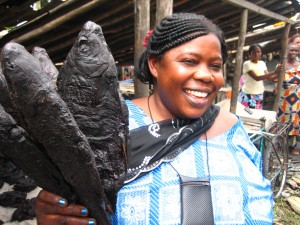In the below Q&A, HOPE’s president, Peter Greer, speaks about international adoption, his new book, and the intersection of microenterprise development and orphan care.
You recently spoke at the Christian Alliance for Orphans’ annual Summit at Saddleback Church. As president of HOPE, how does your work tie to the global orphan crisis?
Adoption has forever changed our family. But as powerful as international adoption is, and as much as it has changed our family, we know that it only reaches a small number of the children globally who need a home. My “day job” at HOPE helps mothers and fathers start or expand small businesses so that they can work their way out of poverty and provide for their children. My hope is that the faith-based adoption community and the faith-based development community will realize how much overlap they have in heart and desired outcomes.
What did you speak about at the conference?
According to UNICEF, there were 132 million orphans living in developing countries in 2008—132 million children dearly loved by God who need a home. But studies have also found that many children in orphanages have a surviving family member who could provide them that home. In Zimbabwe, for example, 40 percent of children in orphanages have a surviving parent, and nearly 60 percent have a contactable relative. The orphan crisis is interconnected with poverty. Parents put their children in institutional care because they don’t have enough money to care for their children. The solution isn’t building more orphanages but rather helping parents earn enough income so that they can care for their children. What parent would prefer for their child to grow up in an orphanage if they had the resources to care for them on their own? We need to broaden the discussion about the orphan crisis to include employment-based solutions that help families work their way out of poverty.

What are some examples you’ve seen of access to financial services leading to better care for orphans?
Some of the best examples I’ve seen are HOPE’s clients. I think of Mama Atiya in the Democratic Republic of Congo, who was left with no resources to provide for her six children when her husband died. A $55 loan from HOPE helped Mama Atiya break into the smoked fish business. She buys fish in bulk, enabling her to offer good prices and function as a wholesaler. Two years and seven loans later, she is the proud owner of an apartment and can afford to educate all her school-aged children. But not only is she taking care of her own children, she has also adopted four children from her community. What an amazing example of low-cost, local orphan care!
You also recently published Mommy’s Heart Went POP! An Adoption Story, a children’s book on international adoption. What led you to write this book?
When my wife, Laurel, and I were in the process of adopting our son Myles from Rwanda, our daughter asked why mommy’s belly wasn’t getting bigger like so many other mommies. We used the language that adoption causes mommy’s heart to get bigger. When we finally held our son, all the love that we had been holding came pouring out, and it literally felt like mommy’s heart popped.
We discovered that there are so few resources available for families who adopt internationally. When our friend Christina Kyllonen sent us this story after we brought our son home, we felt that it needed to be shared with many more people. We have had the joy of working with friends to bring the book to life, and our hope is that it will touch many! The funds we raise through this book all go to the rubymyles fund to help other families adopt or to support local initiatives like HOPE that help bring children into homes.
















Recently my partner, dr maurice mulenga, both retired pastors and in our later years started a fledgling church, spruit comm church in an informal settlement in centurion west, near pretoria, south africa. it is exciting and inspiring to read about helping god’s people to be able to fish, be self supporting, for we agree that that is the way to do community upliftment, by empowering the individual. please keep up the good work, and reporting on it for info , guidance, and encouragement. blessings